High Temperature Fabrics
High Temperature Cloths - Industrial Thermal Textiles for Heat Protection
Vitcas offers a comprehensive selection of high-temperature fabrics engineered for superior performance in extreme thermal environments. These specialised textiles are produced from premium-grade fibres and are designed to withstand continuous exposure to temperatures ranging from 550°C to 1260°C (1022°F to 2300°F). They provide effective thermal insulation, fire resistance, and mechanical protection across a wide range of demanding industrial applications.
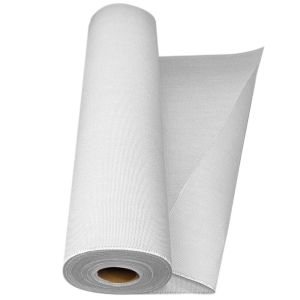 E-Glass Fiberglass Cloth LoomstateAs low as £12.00 £10.00 Regular Price £24.00 £20.00
E-Glass Fiberglass Cloth LoomstateAs low as £12.00 £10.00 Regular Price £24.00 £20.00Glass Fibre Loomstate Cloth offers flexibility with continuous resistance up to 550°C (1020°F) and short-term resistance up to 600°C (1110°F). Ideal for curtains, drapes, and blankets. Non-combustible with high mechanical strength for high-temperature applications.
Read more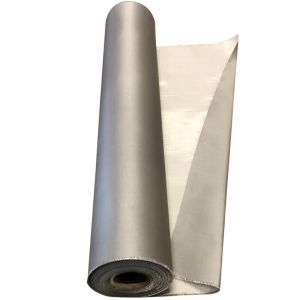 Polyurethane PU Coated Fiberglass ClothSpecial Price £8.40 £7.00 Regular Price £12.00 £10.00
Polyurethane PU Coated Fiberglass ClothSpecial Price £8.40 £7.00 Regular Price £12.00 £10.00Polyurethane (PU) Coated Glass Fibre Cloth is a halogen-free, gas-impermeable, Fire & Smoke fabric. It withstands short-term temperatures up to 600°C (1110°F) and offers high durability and thermal stability, making it ideal for applications requiring reliable heat and flame resistance.
Read more Silicone Coated Glass Fibre ClothAs low as £14.40 £12.00 Regular Price £24.00 £20.00
Silicone Coated Glass Fibre ClothAs low as £14.40 £12.00 Regular Price £24.00 £20.00Silicone Coating Glass Fibre Cloth is coated with silicone on both sides. This gives it high water repellence, abrasion and chemical resistance, which makes it suitable for applications in fire protection systems and insulation jackets. Resistant to high temperatures.
Read more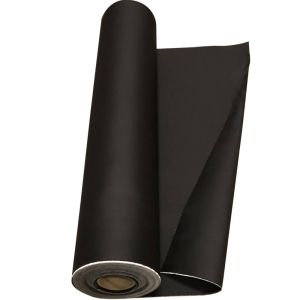 Neoprene Coated Fiberglass ClothSpecial Price £10.80 £9.00 Regular Price £21.60 £18.00
Neoprene Coated Fiberglass ClothSpecial Price £10.80 £9.00 Regular Price £21.60 £18.00Neoprene Coated Glass Fibre Cloth is highly durable and resistant to oil spills, corrosion, and weather. It withstands short-term temperatures up to 180°C (360°F). Ideal for outdoor applications like pipe binding, fire screens, and protective covers in industrial environments.
Read more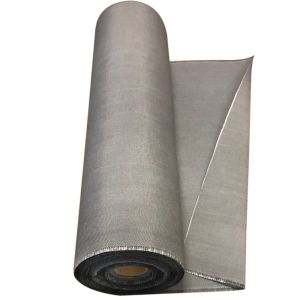 Calcium Silicate Coated Glass ClothSpecial Price £18.00 £15.00 Regular Price £24.00 £20.00
Calcium Silicate Coated Glass ClothSpecial Price £18.00 £15.00 Regular Price £24.00 £20.00Vitcas Calcium Silicate Coated Glass Cloth is resistant to temperatures up to 750°C / 1382°F. It also offers resistance to abrasion, chemicals, oil spills, and is water repellent and weatherproof, making it ideal for applications like flexible expansion joints.
Read more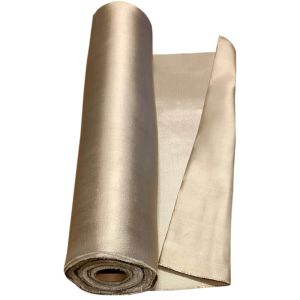 Heat Treated Wire-Reinforced Fiberglass ClothAs low as £24.00 £20.00 Regular Price £30.00 £25.00
Heat Treated Wire-Reinforced Fiberglass ClothAs low as £24.00 £20.00 Regular Price £30.00 £25.00Heat-Treated Wire-Reinforced Glass Fibre Cloth can withstand short-term temperatures up to 600°C (1110°F). It offers excellent resistance to abrasion, chemicals, and oil spills. Additionally, it is water-repellent and weatherproof, making it highly suitable for various industrial applications.
Read more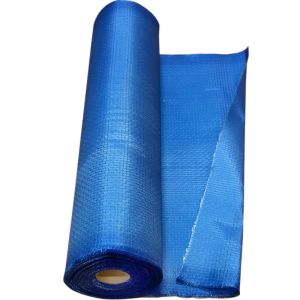 Acrylic Double-Sided Fiberglass Cloth - BlueSpecial Price £9.60 £8.00 Regular Price £12.00 £10.00
Acrylic Double-Sided Fiberglass Cloth - BlueSpecial Price £9.60 £8.00 Regular Price £12.00 £10.00Acrylic Coated Fibreglass Cloth is double-sided with a blue acrylic coating, enhancing abrasion resistance. Its rigid structure and excellent insulation properties make it perfect for use in insulation jackets, expansion joints, and seals, providing durability and protection in high-temperature environments.
Read more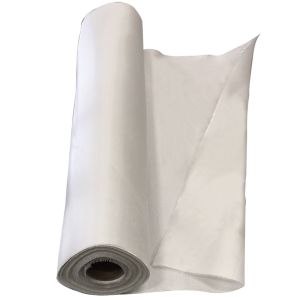 Acrylic Coated Glass Fibre FabricSpecial Price £8.40 £7.00 Regular Price £12.00 £10.00
Acrylic Coated Glass Fibre FabricSpecial Price £8.40 £7.00 Regular Price £12.00 £10.00Acrylic Coated Glass Fibre Cloth is enhanced with an acrylic coating, providing increased rigidity and heat resistance - up to 550°C (1022°F) for continuous use and 600°C (1112°F) for short-term exposure. It also offers excellent abrasion resistance.
Read more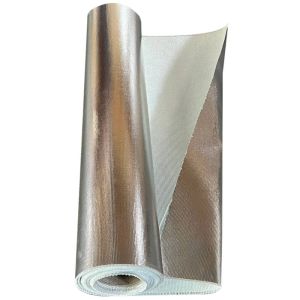 Aluminium Foil E-Glass Fiberglass ClothAs low as £8.40 £7.00 Regular Price £12.00 £10.00
Aluminium Foil E-Glass Fiberglass ClothAs low as £8.40 £7.00 Regular Price £12.00 £10.00Aluminium Foiled Glass Fibre Cloth, single-sided laminated with aluminium foil. The aluminium layer reduces heat loss and minimises fabric fraying. Designed for thermal insulation of machines, installations, and industrial equipment. Also used in the production of protective clothing, including gloves, for high-temperature environments.
Read more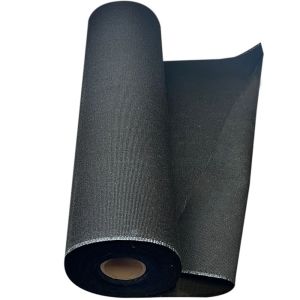 Graphite Coated Fiberglass Cloth 1000°CSpecial Price £24.00 £20.00 Regular Price £36.00 £30.00
Graphite Coated Fiberglass Cloth 1000°CSpecial Price £24.00 £20.00 Regular Price £36.00 £30.00Graphite Coated Fiberglass Cloth enhances heat resistance, withstanding 1000°C (1830°F) for short exposure and 800°C (1470°F) for continuous use. It also offers excellent abrasion resistance, making it ideal for heat-proof quilts and welding defenders.
Read more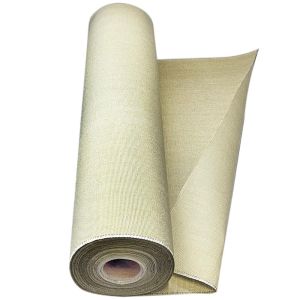 Vermiculite Coated Fiberglass Cloth 1000°CSpecial Price £24.00 £20.00 Regular Price £36.00 £30.00
Vermiculite Coated Fiberglass Cloth 1000°CSpecial Price £24.00 £20.00 Regular Price £36.00 £30.00Vermiculite Coated Fibreglass Cloth improves temperature resistance up to 1000°C (1830°F) by adding vermiculite to glass fibres. It is highly flame-resistant, making it ideal for use in furnace door curtains and other applications requiring direct flame protection.
Read more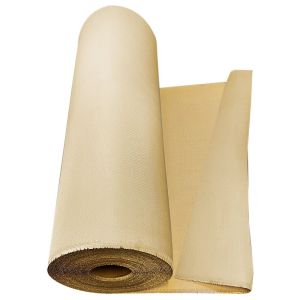 Silica Fibre Cloth 1000°CAs low as £17.99 £14.99 Regular Price £24.00 £20.00
Silica Fibre Cloth 1000°CAs low as £17.99 £14.99 Regular Price £24.00 £20.00Vitcas Silica Cloth is made from silica fibres with a satin weave and is resistant to temperatures up to 1000°C (1830°F). Its high-temperature resistance makes it ideal for firefighting gear such as fireproof garments and for the filtration of molten metals in extreme heat environments.
Read more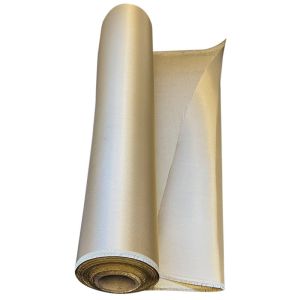 Vermiculite Coated Silica Fibre Cloth 1000°CSpecial Price £17.99 £14.99 Regular Price £30.00 £25.00
Vermiculite Coated Silica Fibre Cloth 1000°CSpecial Price £17.99 £14.99 Regular Price £30.00 £25.00Vitcas Silica Fibre Cloth is manufactured from vermiculite-coated silica fibres with a satin weave. It is resistant to 1100°C (2010°F) for continuous use, making it ideal for firefighting equipment. It also excels in the filtration of molten metals and high-temperature dust and offers great abrasion resistance for demanding industrial applications.
Read more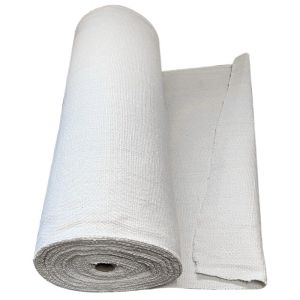 Ceramic Fibre Cloth Biosoluble 1100°CSpecial Price £15.59 £12.99 Regular Price £23.99 £19.99
Ceramic Fibre Cloth Biosoluble 1100°CSpecial Price £15.59 £12.99 Regular Price £23.99 £19.99Vitcas Ceramic Fibre Cloth can withstand high temperatures up to 1100°C (2010°F), making it ideal for use in splash protection in the metallurgical industry, for the collection of high-temperature debris, and as heatproof curtains for furnace doors. It is also resistant to chemicals and bio soluble.
Read more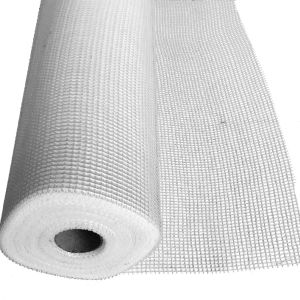 Acrylic Coated Glass Fibre Mesh - Structural ReinforcementSpecial Price £2.40 £2.00 Regular Price £4.80 £4.00
Acrylic Coated Glass Fibre Mesh - Structural ReinforcementSpecial Price £2.40 £2.00 Regular Price £4.80 £4.00Vitcas Glass Fibre Mesh Fabric is designed for use in fireplace construction with heat accumulation or insulation boards. Coated with acrylic resin, it provides water protection, high flexibility, alkali resistance, and excellent durability, making it ideal for high-temperature applications.
Read more
Heat Resistant Technical Fabrics from 550°C to 1260°C
-
Exceptional Thermal Resistance: Withstands continuous temperatures between 550°C and 1260°C, delivering consistent performance in high-heat conditions
-
Diverse Fibre Composition: Manufactured from E-glass fibreglass, silica fibre, ceramic fibre, and other advanced textile materials, each selected for specific thermal and mechanical properties
-
Specialised Coatings: Available with performance-enhancing coatings such as polyurethane (PU), vermiculite, graphite, and silicone to improve abrasion resistance, impermeability, and fire performance
-
Versatile Industrial Use: Ideal for applications such as fire curtains, thermal insulation blankets, heat shields, protective garments, and expansion joint covers
Range of High Temperature Fabrics
The Vitcas range includes a variety of high-performance fabrics in different base fibres, weaves, and finishes. Options include:
-
Woven and loomstate fibreglass cloths for general thermal insulation
-
Coated textiles (e.g. PU, silicone, vermiculite, graphite) for enhanced protection and application-specific performance
-
High-purity silica fabrics for extreme heat environments
-
Ceramic fibre fabrics for superior refractory insulation in industrial kilns and furnaces
These fabrics are offered in various weights, roll widths, and thicknesses to suit different installation and fabrication requirements.
Vitcas high-temperature fabrics are trusted across industries including metallurgy, power generation, marine, oil & gas, fire protection, and manufacturing. Their robust design and thermal reliability make them essential in environments where insulation, fire safety, and mechanical durability are critical. To learn more, read our article on the uses and applications of high temperature textiles.









